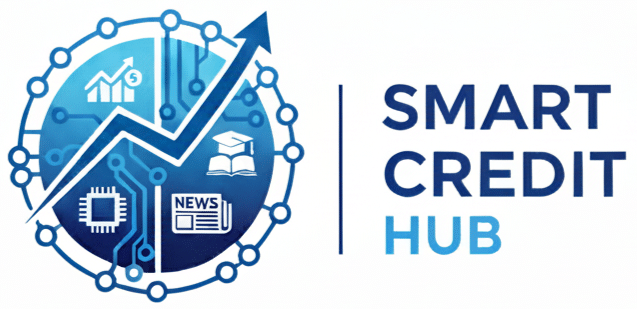In a recent U.S. survey, 79% of employers valued communication and teamwork as much as technical skills. This shift is changing how we plan our careers.
Soft skills are about how we interact, communicate, and solve problems at work. They make our technical skills useful in real-life work scenarios.
Related content:
You will stay on the same website.
Companies like Deloitte and Amazon want employees who are great at communicating and working in teams. People with these skills move up faster and handle change better.
This article will show why soft skills are key. You’ll learn what they are, see examples, and find out what employers look for. We’ll also talk about how to get better at these skills and track your progress.
Understanding Soft Skills: Definition and Importance
Today’s workplace looks for technical skills and personal qualities that shape teamwork. We’ll explain soft skills and show how they’re different from technical skills. We’ll also give examples so you can recognize them in job listings and everyday work.
What are Soft Skills?
Soft skills are about non-technical abilities. They include things like how well you communicate, your ability to adapt, and teamwork. Learning them often comes from experience, mentoring, and thinking over past actions. Employers want people who naturally act with these skills.
Difference Between Soft Skills and Hard Skills
There’s a big difference between soft and hard skills. Hard skills are things you can learn in classes, like how to code or work machinery. Soft skills, though, apply no matter the job and are trickier to measure. For example, coding is a hard skill for a software engineer, but giving good feedback is a soft skill.
Examples of Soft Skills
Job ads might say “strong interpersonal skills” or “great at communicating.” Here are some key soft skills with brief explanations to help you understand them better.
- Communication — speaking and writing clearly to express ideas.
- Active listening — giving full attention to understand better.
- Emotional intelligence — handling emotions to collaborate effectively.
- Teamwork — working together to reach common goals.
- Adaptability — being flexible with changes and challenges.
- Conflict resolution — solving disputes fairly.
- Leadership — leading and inspiring others.
- Critical thinking — analyzing situations to make smart decisions.
- Time management — organizing tasks to meet deadlines.
- Creativity — coming up with new ideas or methods.
The Role of Soft Skills in the Workplace
Soft skills are crucial in the workplace. They reduce misunderstandings, speed up projects, and strengthen client bonds. These skills are vital for daily tasks and setting long-term goals. Here’s how they impact work.
Enhancing Team Collaboration
Good collaboration comes from clear talk, trust, and everyone taking responsibility. Using soft skills, like sorting out conflicts and giving useful feedback, makes team projects go smoother. Teams make fewer mistakes and agree on aims with a good set of soft skills.
Improving Communication
Clear talking and writing mean less redoing work and happier clients. Listening well and giving feedback wisely lead to smarter choices. Teaching soft skills, like clear emails and careful listening, cuts down errors and builds trust with customers.
Boosting Employee Morale
Showing empathy, giving praise, and offering helpful feedback create a safe space. Bosses with emotional smarts often see better retention and more work getting done. The value of soft skills shows in less staff leaving, more involvement, and teams feeling appreciated.
- Soft skills in the workplace make work flow smoothly and clarify roles.
- Importance of soft skills is seen in better client relations and less confusion.
- A practical list of soft skills includes teamwork, communication, understanding others, and solving conflicts.
- Real-world examples of soft skills help staff put skills into action every day.
Key Soft Skills Employers Look For
What are soft skills? Employers often want to know during candidate assessments. They hold a list of soft skills dear. These skills are crucial for both daily tasks and growing a career.
Adaptability is about embracing change and learning new ways quickly. It’s essential in fast-paced sectors like tech and finance. Adaptable employees learn fast, keeping teams flexible and efficient.
Problem-solving mixes analytical thought with inventiveness. It involves identifying root problems, testing theories, and finding solutions together. This approach transforms big problems into manageable challenges.
Emotional intelligence includes understanding oneself, managing emotions, showing empathy, and interacting well. High emotional intelligence leads to better leadership, fewer conflicts, and improved team performance. It lets people navigate complex situations with ease and clarity.
Effective time management means organizing tasks, setting priorities, delegating work, and meeting deadlines. Methods such as time-blocking and task sorting increase efficiency and reduce stress. Good time managers perform consistently well and deliver on time.
This list of soft skills is a tool for job seekers to showcase their abilities. During recruitment, these skills — communication, teamwork, resilience, and creativity — make a difference. They influence recruiters’ choices on who moves forward.
| Skill | Core Behaviors | Workplace Benefit |
|---|---|---|
| Adaptability | Quick learning, flexible priorities, open to feedback | Faster role evolution and smoother change management |
| Problem-Solving | Root-cause analysis, hypothesis testing, creative solutions | Less downtime and more effective resolution of issues |
| Emotional Intelligence | Self-awareness, empathy, conflict navigation | Stronger team cohesion and better leadership outcomes |
| Time Management | Prioritization, time-blocking, delegation | Higher productivity and lower workplace stress |
How Soft Skills Impact Career Advancement
Soft skills are important for professional growth. They include emotional intelligence, clear communication, and the ability to coach others. These skills help in both everyday tasks and moving up in a career.
Soft Skills and Job Promotions
When it comes to promotions, leadership skills often matter more than just technical skills. Companies like Microsoft and Deloitte look for people who are good at handling conflicts and delegating tasks. If you’re great at coaching others and sharing your strategy, you’ll stand out when it’s time for promotions.
Networking Opportunities
Having good people skills also helps you find mentors and get referrals. On LinkedIn, the way you write messages and interact shows your communication skills. Being easy to talk to can lead you to new job offers and projects.
Building a Personal Brand
Being consistent and reliable makes people remember you. Sharing your ideas through articles, speaking at events, and mentoring shows your leadership. These actions help strengthen the skills that build your personal brand and boost your career.
| Career Area | Soft Skill Example | Impact on Advancement |
|---|---|---|
| Team Lead | Delegation and coaching | Improves team output; signals readiness for promotion |
| Individual Contributor | Communication and reliability | Builds trust; increases visibility for stretch assignments |
| Cross-Functional Roles | Networking and approachability | Creates referrals and new project opportunities |
| Executive Track | Conflict management and influence | Demonstrates leadership potential; drives strategic decisions |
If you want to succeed, focus on improving your soft skills with practice and feedback. Knowing why soft skills matter lets you spend your time wisely on coaching, public speaking, and building relationships. Doing so will help your soft skills and chances of getting promoted match up with your career goals.
Developing Soft Skills: Practical Strategies
Learning soft skills needs clear steps and regular practice. This section offers specific ways to get better at listening, speaking, and managing disagreements. You will find easy drills for the workplace and meetings to help improve soft skills gradually.
Active Listening Techniques
First, give your full attention to the speaker. Keep gadgets aside and maintain eye contact when it’s right. This minimizes distractions and is a sign of respect.
Next, echo back what you heard. Saying something like, “So, you mean…” helps confirm understanding. This action sharpens your memory and understanding.
Then, instead of making guesses, ask questions to clarify. Use open-ended questions such as, “Could you explain more?” Make sure not to cut the speaker off.
For practice: at meetings’ end, repeat what you understood. Use mirroring to reflect the speaker’s tone and pace. Try these listening techniques in everyday conversations. Role-playing exercises are also great to make these habits stick.
Effective Communication Practices
Apply structured approaches to shape your messages. The STAR method is great for telling stories briefly. DESC method makes giving tricky feedback easier. These strategies bring a reliable form to conversations at work.
When writing, be clear and to the point. Use short emails, bullet points, and start with the main action needed. Adjust how formal or casual you are based on who you’re talking to.
Getting better at public speaking needs practice. Clubs like Toastmasters provide timed practice and feedback. Practice frequently and record your speeches to polish your speaking style and rhythm.
Conflict Resolution Skills
Begin by understanding people’s true needs instead of just what they’re asking for. This approach leads to inventive solutions.
Apply mediation tactics to lead the talk. Set fair rules, allow everyone time to speak, and outline common goals. Work towards solutions that benefit everyone and meet the main needs.
Make sure agreements are turned into specific tasks. Clarify who is doing what and by when. This stops things from getting off track and makes sure everyone does their part.
Practicing with role-play and then discussing it helps build confidence in handling negotiations and resolving conflicts for real.
The Connection Between Soft Skills and Leadership
Great leaders do more than just know their stuff. They inspire trust, communicate why the work matters, and make wise choices. Leadership soft skills create a positive work environment, motivate employees, and lead to smart decisions.
Leading by Example
Leaders shape the workplace by how they act. Showing up on time, making ethical decisions, and being responsible set the standard. When leaders are true to their word, employees follow suit. This builds a trusting work atmosphere.
Motivating and Inspiring Others
When leaders communicate with purpose, even daily tasks feel important. Using rewards, one-on-one chats, and stories increases enthusiasm. Gallup found that inspiring leaders lead to more committed and productive teams.
Decision-Making
Smart decisions balance facts, fairness, and understanding people’s needs. Skills for such decisions include active listening, evaluating options, and clear explanations. Using tools like lists of pros and cons, decision trees, and discussions ensures thoughtful choices that consider everyone involved.
Practical table of approaches
| Leadership Behavior | Soft Skills Emphasized | Typical Outcome |
|---|---|---|
| Modeling daily routines | Accountability, consistency | Clear expectations and reliable culture |
| Purpose-driven talks | Motivation, communication | Increased engagement and clarity |
| Inclusive decision sessions | Empathy, listening, consultative judgment | Better buy-in and fewer surprises |
Soft skill training makes leaders more emotionally smart and teams more successful. Big names like Google and Microsoft focus on coaching and feedback. This leads to lasting achievements.
Evaluating Your Soft Skills: Self-Assessment
Evaluating soft skills begins with a truthful look at your work behavior. A quick self-evaluation sets the stage for improvement. It combines tests, feedback, and identifying skill gaps to make planning and progress tracking simple.

Tools for Self-Evaluation
Tests give insights into how you act. The DiSC assessment reveals your communication style and work preferences. Tools for emotional intelligence, like EQ-i, measure how well you understand and care for others’ feelings. Feedback from everyone around you gives a complete picture. Keeping a journal helps you see your habits and decisions over time.
- DiSC assessment: shows how you interact and deal with conflict.
- EQ-i and similar EQ tests: measure how you manage emotions and empathy.
- 360-degree feedback: collects views on your behavior from many people.
- Self-reflection journals: help you keep track of daily successes and lessons.
Seeking Feedback from Others
Asking for feedback works well when it’s clear and timely. Request concrete examples from colleagues and bosses. Use questions about specific events, like, “What did you think of my role in our last team meeting?” Arrange a later meeting to discuss progress. Always say thank you and act on the advice you get.
- Find a few colleagues you trust from different areas.
- Ask them focused questions about how you behave.
- Write down what they say and plan a time to talk again.
- Show you’ve improved and express your appreciation.
Identifying Areas for Improvement
Start with a gap analysis to see what skills you need versus what you have. Match important tasks with the necessary soft skills. Focus on skills that greatly help your work and personal connections. Make specific, measurable, achievable, relevant, and time-bound (SMART) goals. Break these goals down into smaller steps to check regularly.
| Step | Action | Example Metric |
|---|---|---|
| Assess role needs | List top 5 soft skills required for current role | Completion of list with examples from job description |
| Measure current level | Use DiSC, EQ-i, 360 feedback, and journals | Average score or qualitative summary within 30 days |
| Identify gaps | Compare required skills to measured levels | Rank top 3 gaps to address first |
| Set goals | Create SMART goals tied to milestones | Three-month plan with checkpoints |
| Track progress | Reassess with the same tools and feedback cycle | Improvement in scores or peer-rated behaviors |
Mixing self-assessment of soft skills with purposeful evaluation tools and consistent feedback makes your focus clear. This strategy spots skills you need to work on and offers a way to get better. Regular checks ensure your plan stays on track and shows results.
Training and Workshops for Soft Skills Development
Organizations know teamwork and leadership are key. They opt for programs aimed at real behavior changes. These include in-person workshops, blended lessons, leadership academies, and mentoring. Firms like General Electric, Google, and Deloitte invest in these for better communication and decision-making in teams.
Corporate Training Programs
Corporate soft skills training starts with identifying needs. Then, it progresses to targeted workshops. Here, participants get to practice through live feedback and solving problems together. Blended learning combines classroom and digital lessons to strengthen the learning. Leadership programs and mentoring help new managers grow with help from seasoned leaders.
Online Courses and Tutorials
Online courses in soft skills are popular on sites like Coursera and LinkedIn Learning. Learners can pick courses in communication, emotional intelligence, and more. They can earn certificates to prove their skills. And, they can study at their own pace, fitting learning around their jobs.
Role-Playing Exercises
Role-playing makes for a safe place to practice difficult talks. It boosts skills in feedback, negotiating, and handling customers. Sales teams, and customer service folks use it to improve how they respond. Instructors help by watching, pausing, and guiding, so everyone leaves with actionable feedback.
The Impact of Soft Skills on Company Culture
Soft skills influence how people act, decide, and solve issues within a business. Leaders and staff who use respectful talk and psychological safety make teams more engaged and less likely to leave. Firms like Microsoft and Salesforce show that how we act with each other greatly affects team spirit and morale.
To create a good workplace, start with clear, kind talk and regular praise. Teams getting honest feedback often focus better and feel less stressed. Training bosses to listen with empathy and solve conflicts peacefully reduces problems and keeps valuable workers.
Building a diverse and inclusive environment starts with understanding culture and being aware of biases. Programs that teach active listening and fairness boost team work across different cultures. For instance, Deloitte and Accenture run training sessions using role-play and real situations to increase understanding and better daily actions.
Spurring innovation needs open talk and being okay with some risk. Teams at Google and IDEO that work across different areas show that working together helps solve creative problems quicker. When bosses praise sharing ideas and see mistakes as chances to learn, teams can innovate faster and make products quicker.
Below is a short list of practices and outcomes that tie soft skills to culture, inclusion, and innovation.
| Practice | Primary Soft Skills | Organizational Outcome | Real-World Example |
|---|---|---|---|
| Regular feedback and recognition | active listening, respectful communication | Higher engagement; lower turnover | Salesforce implements frequent manager check-ins |
| Cultural competence training | bias awareness, cultural empathy | Improved cross-team collaboration; fairer decisions | Deloitte runs inclusive leadership workshops |
| Cross-disciplinary sprints | collaboration, open communication | Faster prototyping; increased creativity | Google’s design sprints accelerate product development |
| Psychological safety initiatives | trust-building, vulnerability in leadership | More idea-sharing; reduced fear of failure | IDEO fosters safe spaces for experimentation |
| Bias mitigation in hiring | active listening, objective evaluation | More diverse teams; better decision quality | Accenture uses structured interviews to limit bias |
Measuring the Effectiveness of Soft Skills
To measure soft skills, you need different methods. Teams should have clear goals and reliable data. They also need tools that show how behavior affects business outcomes. Below are ways to keep track of improvements and show their value.
Performance metrics
Soft skills and performance metrics must be connected to what you can see. Look at how productive the team is, how long projects take, and customer happiness. Also, check reviews from coworkers and if leaders are doing well.
Count how quickly work gets done and how often people ask for help to notice any changes. Adding objective numbers to manager reviews helps keep evaluations fair. Comparing with past data shows if things are getting better. Short, regular checks make spotting trends easier.
Employee surveys
Surveys tell you how employees feel about working together, trust, and how they talk to each other. Quick pulse surveys give fast feedback. Longer engagement surveys provide more detail, and 360-reviews give a full picture of someone’s strengths and weaknesses.
Looking at survey results over time shows if new strategies are helping. Combining survey answers with performance data can show links between team spirit and achievements.
ROI analysis
To see if soft skills training pays off, compare data from before and after training. Check if people stick around longer, if clients are happier, and if work gets done faster. Figuring out how much money you save by keeping staff can show if the training is worth it.
For instance, if fewer people leave the company, and it costs $30,000 to replace someone, the savings can support your training budget. Tracking how often problems come up and how fast they’re solved shows how much time and money you save.
Using these methods, you can make a tool that shows how improving soft skills leads to better results for the company. Regular updates let bosses know where to spend money and how to make programs better based on what they learn.
The Future of Work and Soft Skills
The work landscape is shifting fast. Things like automation, AI, and worldwide teams are changing what we expect every day. Workers who are good at dealing with people will stand out. This section talks about these trends and gives steps to get ready for these changes.
The Growing Demand for Soft Skills
The World Economic Forum and the U.S. Bureau of Labor Statistics say there’s a bigger need for creativity, emotional smarts, and flexibility. Employers see these traits as just as important as tech skills. Big companies like Deloitte and Amazon have even started teaching how to communicate and work as a team because soft skills are becoming so important.
As jobs that are repetitive get done by machines, ones that need talking through things, coming up with new ideas, and leading are more valued. Schools and training teams in companies now focus more on teaching these skills.
Soft Skills in Remote Work Settings
Teams working remotely need to write clearly, follow online manners, and be considerate of time zones to succeed. Leaders at Microsoft and Slack say to keep messages short and meetings well-planned to avoid getting too tired.
It’s best to agree on how quick to reply, share files for everyone to see, and take turns running online meetings. This helps everyone feel part of the group. It also makes working together from far away easier, making soft skills in remote work really important.
Adapting to Technological Changes
Using new tools means blending tech skills with smart thinking and a knack for learning. Star employees at Google and IBM are good at their jobs, curious, and work well with others. These skills help humans and machines work better together and learn new tech tools faster.
Companies should push for ongoing learning with short training sessions and guides. Teams good at solving problems and talking across different areas do best at keeping up with tech changes.
Soft Skills in Different Industries
Each industry values different soft skills. What matters is how these skills fit the daily work and goals of a company. Let’s look at the important soft skills in four key sectors and their impact.
Healthcare
In healthcare, teams need good bedside manner, empathy, and clear talk with patients to gain their trust. Nurses and doctors work together and manage stress in busy times.
Good soft skills lead to happier patients and fewer mistakes. Training to better empathy and talking skills can make patient care better and lower readmission rates.
Technology
In tech, people like software developers need to work together and talk across teams. Being able to solve problems and adapt is key when plans change.
Tech requires explaining hard ideas in simple ways. This skill helps make decisions faster and gets more people to use the product.
Education
Teachers need skills in managing classrooms, understanding students, and clear communication. Being culturally aware helps create an inclusive environment and strengthens community bonds.
Soft skills in education lead to better student participation and trust from parents. Schools focusing on these skills often see better attendance and involvement.
Customer Service
Customer service jobs need good listening, patience, and empathy to solve problems. Being clear in communication keeps the brand’s voice strong and builds loyalty.
Soft skills in customer service are key to keeping customers and building a good reputation. Teams that are calm and clear in handling complaints can reduce customer loss and increase value over time.
| Industry | Top Soft Skills | Primary Benefit |
|---|---|---|
| Healthcare | Empathy, bedside manner, teamwork, stress management, patient communication | Improved patient satisfaction and safety |
| Technology | Collaboration, cross-functional communication, adaptability, problem-solving, translation for nontechnical stakeholders | Faster delivery and better stakeholder alignment |
| Education | Classroom management, empathy, communication, cultural competence | Higher student engagement and stronger community ties |
| Customer Service | Active listening, de-escalation, patience, empathy, clear communication | Increased retention and positive brand perception |
Success Stories: Individuals Who Excelled with Soft Skills
Real-world examples show how key soft skills are for career growth. This collection showcases individuals who excelled using communication, leadership, and empathy. They landed promotions, moved into diverse roles, and grew their influence through these skills. These stories, backed by high-level endorsements, show the value of soft skills at work.
Case Studies of Career Advancement
An engineer at a big cloud company turned product lead thanks to her communication and teamwork skills. She made technical limits clear, gaining the trust of her colleagues. In just 18 months, she took on more duties.
A nurse became a clinical manager by solving conflicts, ensuring smooth shift changes, and mentoring staff. Her soft skills boosted patient care and cut staff turnover. She’s now a prime example of clinical leadership success.
A marketing analyst at a top brand got a key role in a new department by showcasing his presentation skills and understanding of others. This move came with better pay. His story is often shared to show the power of soft skills.
Testimonials from Industry Leaders
Microsoft’s Satya Nadella cites empathy as vital for quick decisions and a happy team. He believes empathy is as crucial as tech know-how. Leaders like him show how soft skills shape strategies.
Sheryl Sandberg talks about the strength of clear communication and active listening. She connects these skills to effective leadership and improved team performance. Her insights highlight soft skills’ role in leadership success.
Indra Nooyi, formerly of PepsiCo, valued mentoring and honest feedback. She believes such practices ready people for global challenges. Her experience supports the need for soft skills training in big companies.
Media and Company Examples
Deloitte and McKinsey report that training in teamwork and negotiation leads to promotions. Their findings link training investments to bigger project roles. These examples underline the triumphs shared in soft skills stories.
Stories from The New York Times and Harvard Business Review show firms valuing leadership and communication face less turnover. They highlight how prioritizing these skills accelerates career progression. Such stories guide talent development strategies.
IBM and Cisco share how mentoring programs have facilitated significant career steps and pay raises. These tales, together with leader testimonies, show why nurturing soft skills is crucial for both individuals and companies.
Conclusion: The Long-Term Benefits of Soft Skills
Soft skills add lasting value to your career. Big companies, like Deloitte and Amazon, value them as much as technical skills. Seeing skills like understanding others and handling emotions as key assets can lead to greater impact, career growth, and happiness at work.
Investing in Personal Development
Personal growth comes from coaching, mentoring, courses, and practice. It keeps skills like talking well, adjusting to change, and making good choices sharp. This way, small steps taken often lead to big benefits in soft skills, making your technical skills even more powerful.
Building Sustainable Relationships
Good communication, empathy, and trust are the foundation of strong work networks. These qualities help teams work well together, reduce problems, and make your career stronger. By building lasting relationships, you’ll get more referrals, support from different teams, and success in long-term projects.
Achieving Career Goals
Soft skills boost your chances of getting promoted, leading a team, and moving up in your career. Pairing these with solid technical skills makes reaching top positions more likely and work more satisfying. People in the U.S. should look at their soft skills and take clear steps—like evaluating themselves, learning more, and getting feedback—to use soft skills to reach their career aims.



